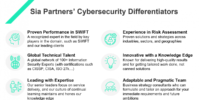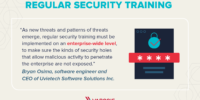As cybersecurity threats continue to evolve, the role of ethical hackers has become increasingly vital in safeguarding digital assets. Ethical hacking, or penetration testing, involves authorized attempts to exploit vulnerabilities in systems, applications, or networks to identify and fix potential security risks. In this article, we’ll explore the essentials of ethical hacking and provide quick tips for honing your skills in this crucial field. ️
The Ethical Hacking Landscape
Ethical hacking is a proactive approach to cybersecurity, where professionals simulate real-world cyber-attacks to assess the security posture of an organization. The goal is to identify weaknesses before malicious hackers can exploit them. Here are some quick tips to enhance your ethical hacking proficiency:
1. Continuous Learning and Skill Enhancement
The world of cybersecurity is dynamic, with new threats and vulnerabilities emerging regularly. Stay ahead by committing to continuous learning. Engage with online platforms, attend relevant conferences, and pursue certifications like Certified Ethical Hacker (CEH) to keep your skills sharp.
2. Understand the Ethical Hacking Framework
Familiarize yourself with the ethical hacking framework, which typically involves reconnaissance, scanning, gaining access, maintaining access, and analysis. This structured approach ensures a comprehensive examination of systems and networks.
3. Master Network and System Fundamentals
Develop a deep understanding of network protocols, operating systems, and system architectures. Proficiency in these fundamentals is essential for identifying and exploiting vulnerabilities effectively. This knowledge forms the foundation of ethical hacking expertise.
4. Hands-On Practice with Tools
Ethical hackers leverage a variety of tools to perform penetration testing. Tools like Nmap, Wireshark, Metasploit, and Burp Suite are common in the arsenal. Gain hands-on experience with these tools in a controlled environment to enhance your proficiency.
5. Stay Legal and Ethical
Adhere to a strict code of ethics in ethical hacking. Ensure that you have explicit permission to conduct penetration tests on systems, networks, or applications. Stay within the boundaries of the law and respect the privacy of individuals and organizations you are assessing.
6. Build a Home Lab for Practical Experience
Create a home lab environment to practice your skills in a controlled setting. Set up virtual machines, networks, and applications to replicate real-world scenarios. This hands-on experience is invaluable for gaining practical insights into hacking techniques.
Ethical Hacking in Action
7. Conduct Thorough Reconnaissance
Effective ethical hacking starts with comprehensive reconnaissance. Gather information about the target system, including domain names, IP addresses, and publicly available data. This phase lays the groundwork for subsequent testing.
8. Utilize Automated Scanning Tools Judiciously
Automated scanning tools can expedite the identification of vulnerabilities. However, use them judiciously to avoid overwhelming the target system with excessive traffic. Adjust settings to minimize the risk of disrupting operations.
9. Exploit Vulnerabilities Responsibly
When exploiting vulnerabilities, exercise caution and follow a responsible disclosure process. Document your findings, report them to the relevant stakeholders, and collaborate on remediation efforts. The goal is to improve security, not cause harm.
10. Document and Communicate Findings Clearly
Effective communication is a key aspect of ethical hacking. Document your findings in a clear and concise manner, providing detailed reports to stakeholders. Clearly articulate the risks, potential impacts, and recommended remediation strategies.
Conclusion: Elevating Cybersecurity Defenses
Ethical hacking plays a pivotal role in fortifying cybersecurity defenses. By following these quick tips and staying committed to ethical practices, you can contribute to creating a more secure digital landscape. Embrace the evolving challenges, stay informed, and be a vigilant defender against cyber threats.








